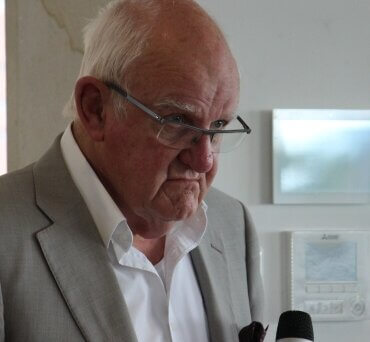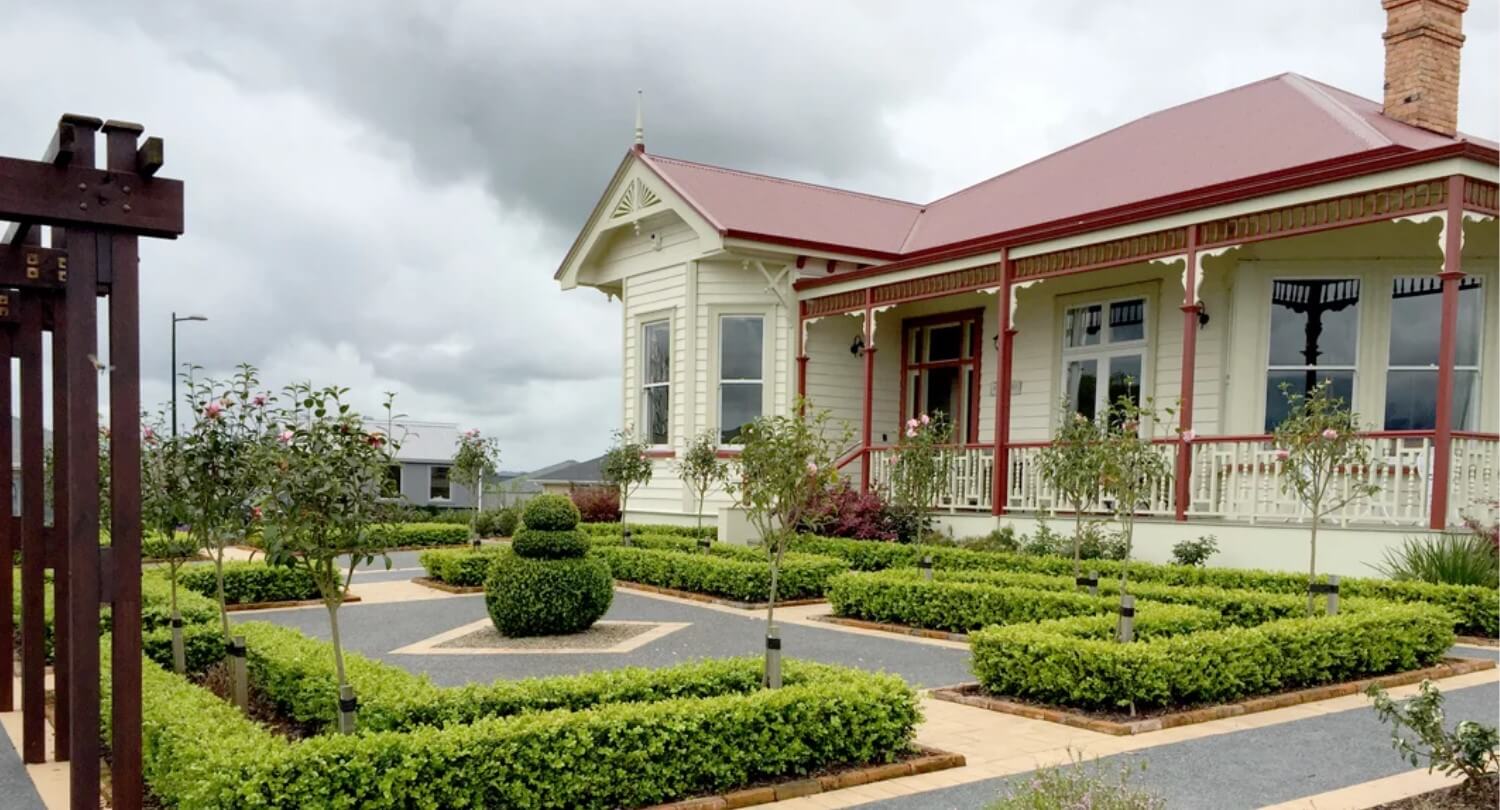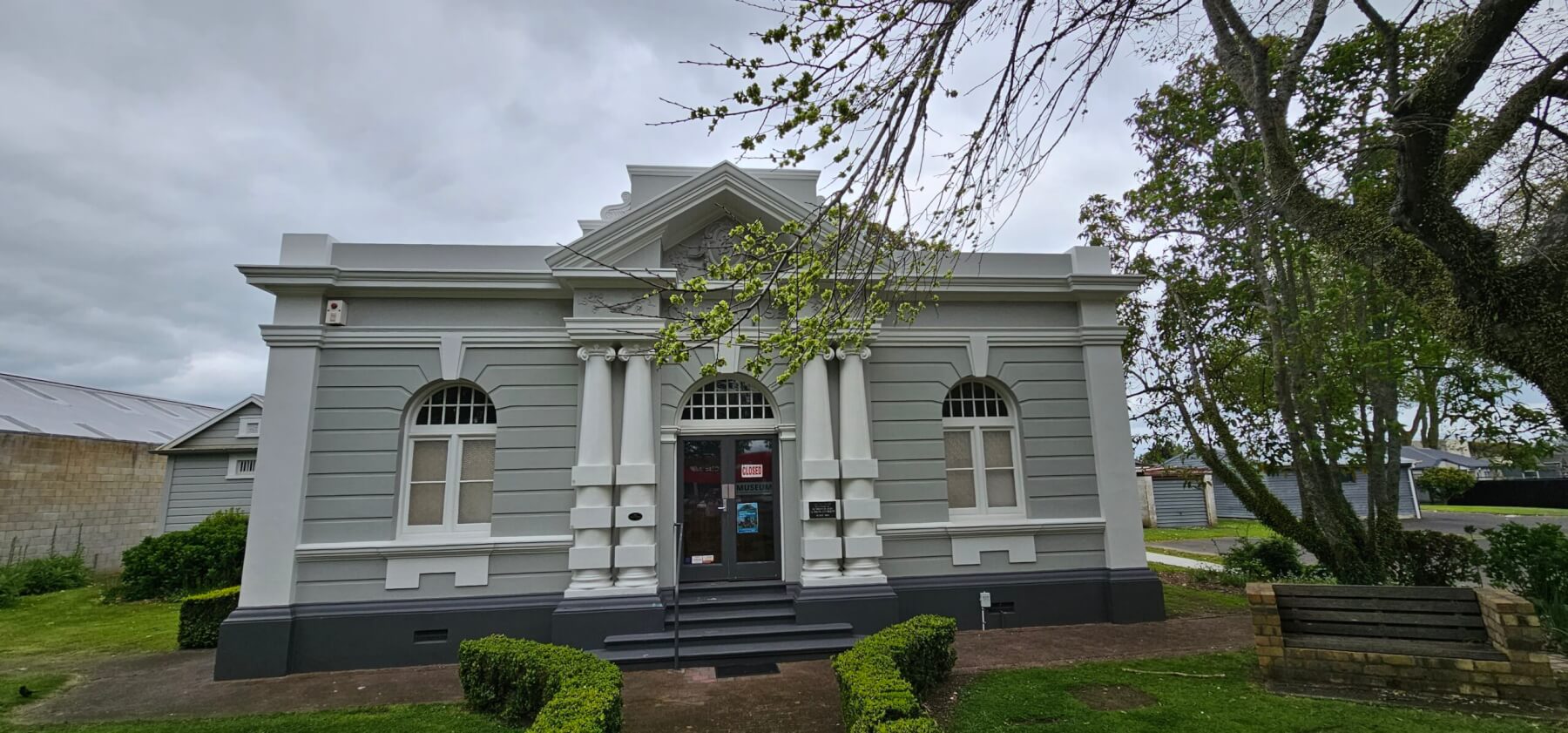
Peter Carr
One hundred and sixty years ago, in an inglorious and bloody land grab, the (then) British armed forces started a southwards drive at Pokeno. This was to create a land grab from the Māori owners in the Waikato and to attain a superior military and land-owning ability.
The Māori were outnumbered both militarily and in skills and weaponry. They retreated south along the Waikato River, stopping from time to time to engage in heavily imbalanced warfare at redoubts – especially at Rangiriri and Alexandra (now Pirongia). Their route took them upriver as far as Ngāruawāhia where a decision had to be made as to maintain a Waikato River route or to bend towards the south along the muddy waters that comprise the Waipa River. In choosing the latter they were mindful of their large stocks of grain and (subsequent) flour held in stores along the banks of that river.

The iconic Whare Ora Victorian homestead – the highest point in Leamington – was built over the summer of 1901/02 by William Hogan for £842 for William and Mary Rout.
The sad and much renowned battle near Kihikihi essentially saw the beginning of the end of the skirmishes and the military parties agreed a truce at the Punui River (thus entering the King Country) and the Aukati Line between Cambridge and Karāpiro.
During this period the British troops stationed at Cambridge – morphed into and renamed the Cambridge Armed Constabulary – attempted to establish their own redoubt – or fort – at the highest land point in the town being colloquially known as Māori Hill. At the top of what is now Coleridge Street. This was in order that the Constabulary members could use this vertical standpoint to keep an eye on the Māori who would, no doubt, attempt to rejoin the Waikato River to secure and maintain their flour mill at the bottom of (now) Shakespeare Street. The Constabulary decided not to occupy the vantage point and instead, realising that they could observe the river and flour mill from lower down at Fort Street, settled their observers at a point not far from (today’s) ambulance station.
So why this delve into a piece of history? Well, this week a ceremony took place on ‘Māori’ Hill where the redoubt was originally to be sited and would have been well identified by the flying of the Union Jack national flag of Great Britain.
Thanks to the generosity of a well-respected Cambridge builder the retirement village owners of the hill and its surrounds accepted a gift comprising a mast from a 1930s Dutch racing yacht which had found its way to New Zealand during the 1990s. This lovely piece of timber now stands proud on the spot where the original from 160 years ago would have stood and where the national flag of New Zealand flies proudly. Viewable from a surprising number of points around Cambridge.
Too often – and too soon – we lose our ability to record – and keep alive – facets of our history which these days drifts even further into obscurity when educationalists (not the teachers mind) fiddle with the boundaries and accuracy of what has gone on before. Looking at the Te Awamutu library – upon which I commented favourably a few weeks ago – I am driven to ask to what extent we, as citizens and our local council, are prepared to undertake to ensure our wee, somewhat shy, Cambridge Museum does not fall by the wayside and become swallowed into a whole-of-district nonentity.

Cambridge Museum








